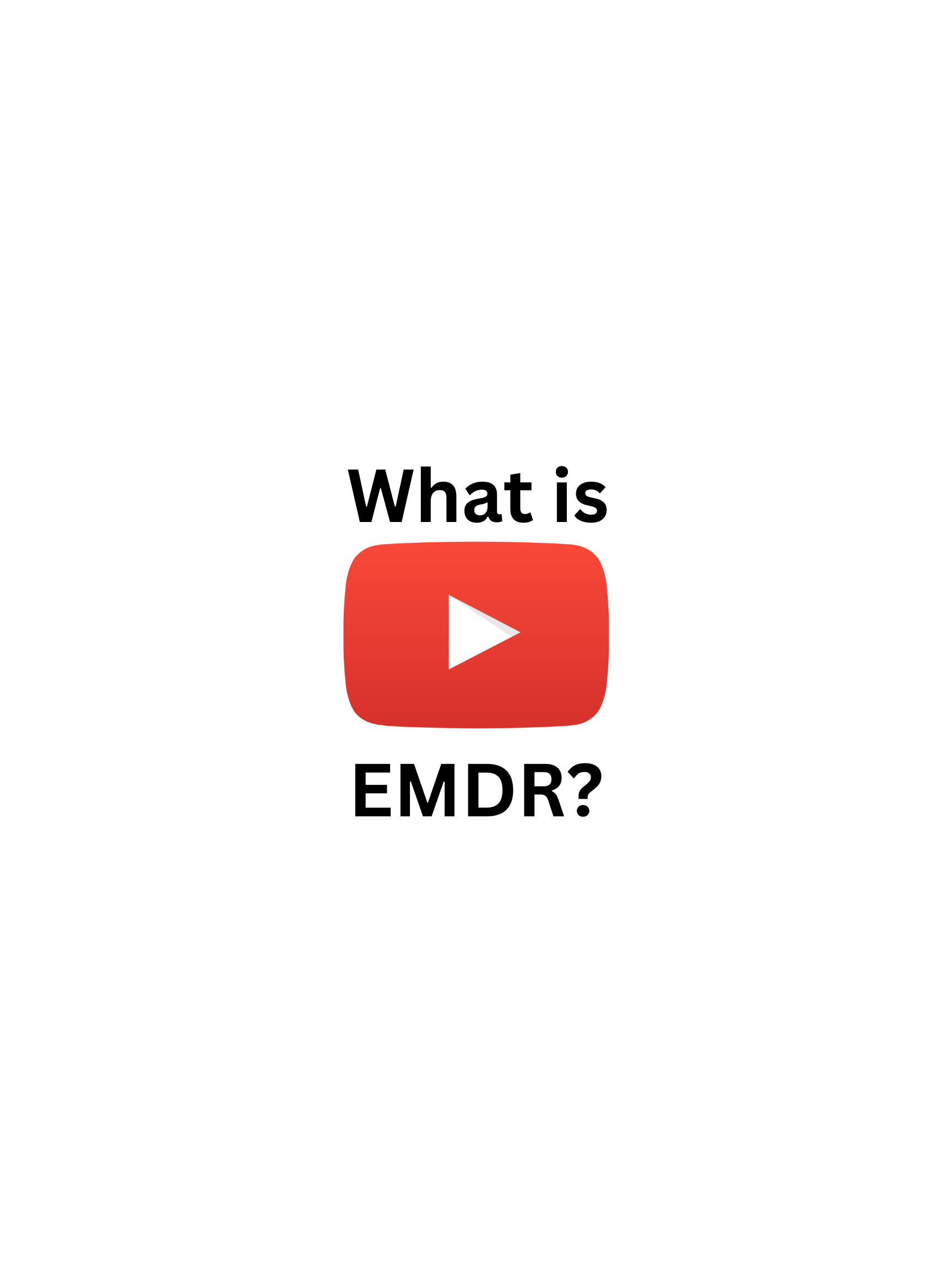Eye Movement Desensitization and Reprocessing
Getting Past your Past
I specialize in a treatment approach called EMDR therapy. EMDR is an acronym for Eye Movement Desensitization and Reprocessing, because it is used to “desensitize and reprocess” memories that have been encoded in the brain and body as if “frozen in time” as a result of traumatic experiences.
Repeated studies show that with EMDR therapy, clients can experience the benefits of psychotherapy that once took years to make a difference.
Just like how someone would naturally heal from a physical wound, when we experience emotional wounds, we naturally tend towards healing. However, sometimes we get blocked in the healing process; EMDR helps remove those blocks.
The conscious mind is the tip of the iceberg - plenty of planning of processing can be done, but that's only getting to the tip of the iceberg. The unconscious mind is what's underwater, and that's what's really driving our emotions and behavior. EMDR helps access the unconscious.
How do I know if EMDR is right for me?
EMDR can be done immediately after a traumatic experience, or years afterwards.
The kinds of traumatic experiences (Big T traumas) that can sometimes lead to PTSD are events including, but not limited to:
Car accidents
Natural Disasters
Physical assault (experiencing or witnessing)
Sexual assault
Combat
Childhood or adult abuse (physical, emotional or sexual)
Extreme illness or the sudden death of a loved one
When people experience traumas like these, they sometimes change the way they see the world. They might believe things like "The world is a dangerous place" or "I should've done more to stop it." EMDR can help to 'reprocess' these traumatic experiences to change these beliefs into statements like "I survived it and I am strong" or "It wasn't my fault, and I did everything I could."
EMDR is also effective with "small t traumas," such as:
Bullying
Constant criticism
Humiliation
Shame
Guilt
Grief
Divorce
These experiences can accumulate over time to create negative self-beliefs like "I'm not good enough" or "I can't do anything right." EMDR can help to 'reprocess' these childhood experiences to change these beliefs into the truth: "I am enough."
EMDR was developed in 1989 by psychologist Francine Shapiro, and has been extensively researched and proven to be effective for the treatment of trauma-based disorders. To learn more about EMDR research, visit the EMDR Institute website.
The most commonly-known trauma disorder is Post-Traumatic Stress Disorder (PTSD). PTSD can develop after experiencing an event (or multiple events) that are so difficult to deal with that they remain partially unprocessed, causing symptoms that are hard to live with (eg. difficulty sleeping, distraction, feeling disconnected, etc.).
Over the last 26 years, EMDR has been found to be effective with a much broader range of disorders beyond just PTSD.

